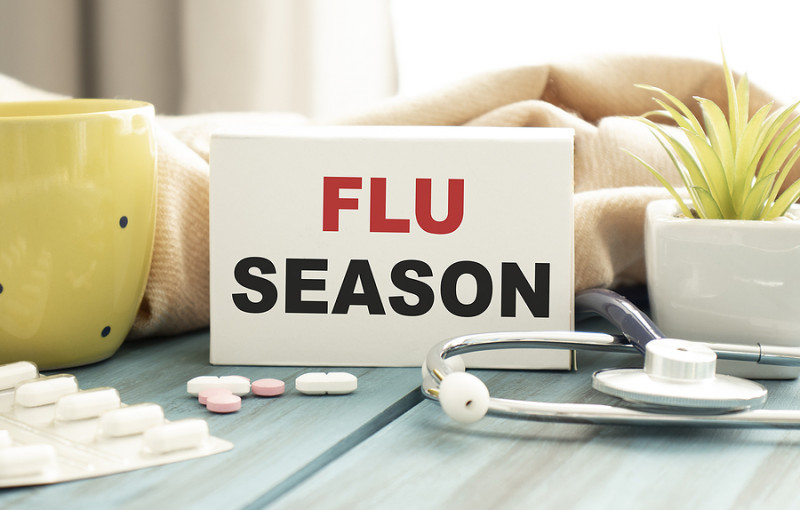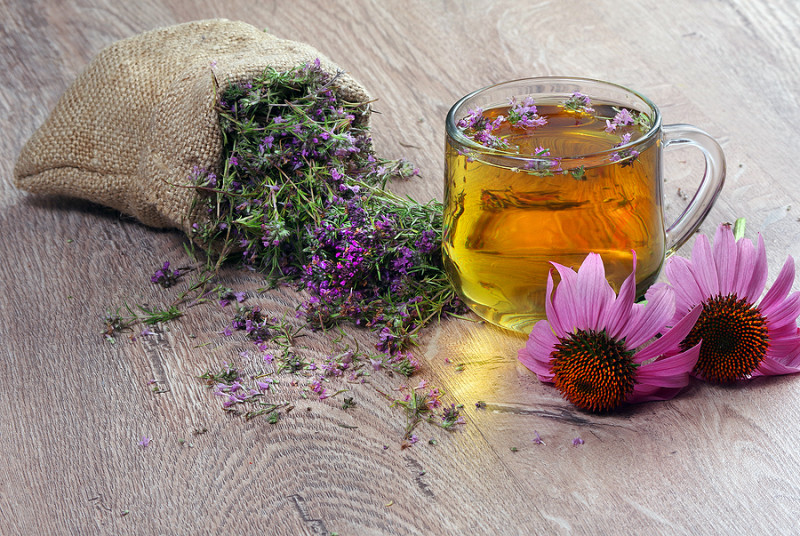Getting Ready for Flu Season
Flu season is almost upon us, and this year, more than ever before, the added concern and increasing cases of Covid 19 adds another dimension to flu season. Keeping ourselves safe and healthy in these challenging times is a daily battle, so how can you give yourself that added advantage and give your body the biggest fighting chance of staying well this winter and preparing for flu season.

Please Don’t Take My Sunshine Away
In the last few months we have been seeing a lot in the
media about Vitamin D, and the potential benefits it may give in protecting and
treating us against the effects of Covid 19. It has been hypothesised that
Vitamin D may play a role in the body’s immune response to respiratory viruses,
and there is evidence for and against this. It is likely too early to say with
certainty the exact effects that Vitamin D may or may not have in helping with
Covid 19, however with 1
in 5 adults and 1 in 6 children in England considered to have inadequate / low
vitamin D levels, it would be beneficial anyway, to follow the UK Government
advice on Vitamin D supplementation. This advises that adults
and children over the age of one should have 10 micrograms (mcg) of
vitamin D EVERY day, particularly so in the autumn and winter months. This is
because our vitamin D mostly comes from sunlight, and between October and April time, the
sunlight we do get is of the wrong wavelength to actually create vitamin D in
the skin.

A recent cross-sectional National Diet and Nutrition
Survey reveals that 8.4% of UK white 19–64 years old have vitamin D deficiency
(< 25 nmol/L) in the summertime, which rises to 39.3% in the winter months. So
although we can’t say with certainty yet, if Vitamin D has a part to play in
fighting Covid 19, we should all be taking this Vitamin daily over autumn and
winter and if it happens to offer some protection against Covid, then that will
just be a little (or big) bonus!
Laughter is the
Best Medicine
One thing that is becoming increasingly difficult for
many people in these trying times, is to keep a positive and upbeat mood.
Mental health is becoming increasingly talked about, and this year in
particular has caused a large strain on people’s mental health with all age
groups been affected. With the current Covid situation continuing, with
seemingly little light ahead as yet, there can be days where our mood is low
and are thoughts are negative. You may be thinking well ok, but what has this
got to do with flu season? The answer is that we are now starting to realise
the connection between mental health and physical health and there is now a
huge amount of research that shows that positive emotions and positive thoughts
actually enhance immune function. This is in contrast to negative thoughts and
low mood, which have been shown to impair and negatively affect immune
response. So despite how hard it is right now to keep our mood uplifted and
have positive thoughts flood through our minds, trying to find even small ways
to uplift mood and create positivity in our own environments will be hugely beneficial
to our immune systems and thus help keep flu at bay. We have all heard of the
saying ‘laughter is the best medicine’ and
that is certainly proving to be true. So when you are feeling low or negative,
put on a comedy, do an activity you enjoy or have a laugh with friends & family
(even from a distance), all of which will help improve mood and garner
positivity.
Let Food be Thy Medicine
With many foods
containing active components that have a positive effect on our health, the
Greek Physician, Hippocrates (406 B.C.E – 375 B.C.E), was really ahead of his
time when he stated ‘let food be thy medicine’. One particular powerful
antioxidant called Glutathione can be found in a few different foods and can
certainly be an effective helper in guarding against flu and reducing
susceptibility to other infections. In fact it is a good ‘all-rounder’ for
maintaining overall health, as well as supporting healthy aging and general
disease prevention, as both these things depend on the body having high levels
of glutathione in the body. With its
antioxidant benefits, as well as being a powerful detoxifier, glutathione plays
a huge part in the immune response.
Although the body
produces Glutathione naturally, this slowly starts to diminish as we age and is
also depleted after an immune response E.g. after illness, so it’s even more
important that we try and keep levels high by eating foods that help the body’s’
natural ability to produce good levels of Glutathione. These foods include
sulphur rich foods such as cruciferous vegetables, including broccoli,
cauliflower, kale, Brussel sprouts (a sprout is not just for Christmas
remember!!) and watercress. Selenium is also required for your body to produce
Glutathione, so ensure a good selection of the selenium rich foods in your diet
such as Brazil nuts, eggs and fish.
The bad news is that
alcohol causes Glutathione levels to reduce rapidly, so if you are a regular
drinker or drink in excess, you are certainly more likely to be susceptible to
illness, including flu!
Magic of Botanicals
Herbs and botanicals have been used for centuries for cooking and for their medicinal properties. Some very commonly known herbs and botanical species are increasingly used in health supplements to offer a variety of health benefits including those that have been shown to offer immune boosting properties. These include Ginseng, Echinacea and Elderberry, all of which have some great research backing for their use for helping give the immune system a good boost. Ginseng has shown to play a key role in disease prevention by modulating the immune function of the human body, with some research showing it can help treat and prevent flu, as well as a respiratory infection called RSV, which causes symptoms similar to the common cold.
Elderberry
is one of the most widely used medicinal plants in the world and is reported to
have antiviral properties against flu and is commonly used to help treat and
prevent colds. If you are quick, and like to forage, you will still catch some scattered
around the countryside ready for picking and turning into your own elderberry
super tonic. Elderberry offers many nutritional benefits including being high
in vitamin C, anthocyanins, fibre and flavonols and research has shown its
usage can reduce both recovery time and severity of both colds and flu.
Echinacea,
although probably most synonymous with immune boosting, has more mixed evidence
to show its efficacy, but again there is some research showing it can reduce
the duration of colds, as well as increase some white blood cells that are
responsible for fighting infections.

Those Boots Are
Made for Walking
Although the evenings are drawing in and darker nights
are not far away, one thing that you should be making a priority at some point
during your day is walking. This is important for all age groups and especially
the elderly as we know immune function reduces in efficiency as we age, making
elderly people more susceptible to infection, including the flu. Some studies
show that exercise such as walking helps reduce the incidence of upper
respiratory tract infections, although the exact reasons why remain unclear.
Just a single session of fairly brisk walking or even
cycling, if you prefer, for just 20-30 minutes has also shown to increase the activity
of several different types of immune cells, so put on that big coat and head
for the great outdoors. Remember also that research shows that just being out
in nature has a positive effect on mood, so if you need a dose of positivity
(see section above), walking in greenery and nature will give a double whammy
to your immune system.
Maintaining
your health requires a multifaceted approach. We know that for a healthy immune
system, it requires a balancing act between good nutrition, healthy mind,
physical exercise and good quality sleep. Achieving all this, in this current
time of uncertainty and stress is very difficult, but doing even small bits
that work towards these four areas, will really help best prepare you for the
flu season ahead.
References
·
Vitamin
D and the Immune System, 2011. Journal Investigative Medicine
·
NICE, National Institute for Health & Care Excellence, June
2020. COVID-19 rapid evidence summary: vitamin D for COVID-19 https://www.nice.org.uk/advice/es28/chapter/Key-messages
·
A chuckle a day keeps the doctor away:
therapeutic humor and laughter. 2004. Journal of Psychosocial Nursing
and Mental Health Services
·
Role of glutathione in immunity and inflammation in the lung, 2011.
International Journal of General Medicine
·
Aging & Health Promotion, 2006. The Effects of Walking Exercise
Training on Immune Response in Elderly Subjects
·
The compelling link between
physical activity and the body's defence system, 2019. The Journal of Exercise
& Health Science.
·
Upper Respiratory Tract Infection
Is Reduced in Physically Fit and Active Adults, 2010. British Journal of Sports
Medicine
·
Ginseng: A dietary supplement as immune-modulator in
various diseases, 2019. Trends in Food Science & Technology
·
A Review of the
Antiviral Properties of Black Elder (Sambucus nigra L.) Products, 2017.
Phytotherapy Research
·
Randomized study of
the efficacy and safety of oral elderberry extract in the treatment of influenza
A and B virus infections, 2004. The Journal of International Medical Research
·
Echinacea for
preventing and treating the common cold, 2014.
Cochrane Library